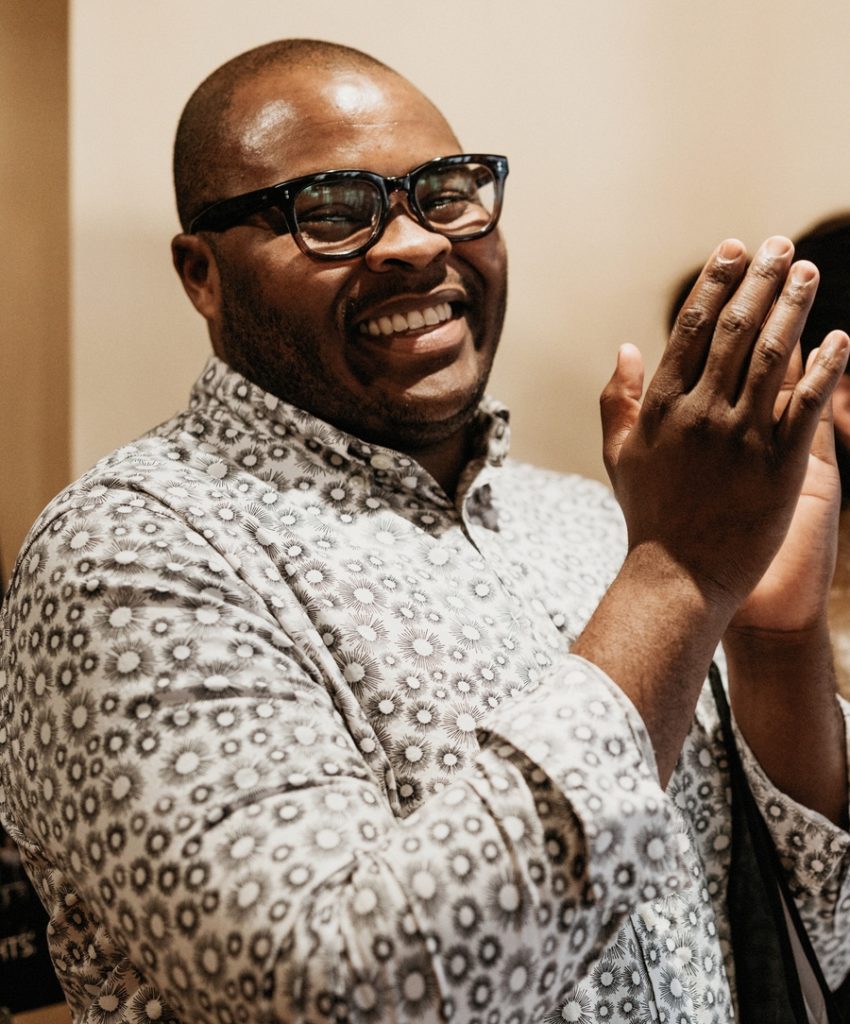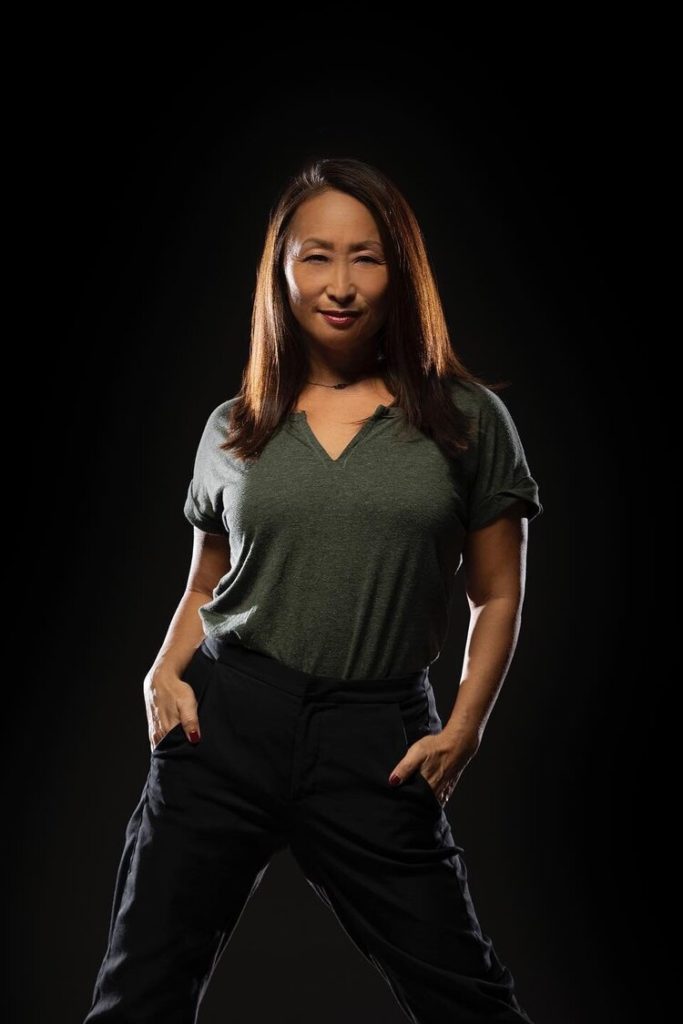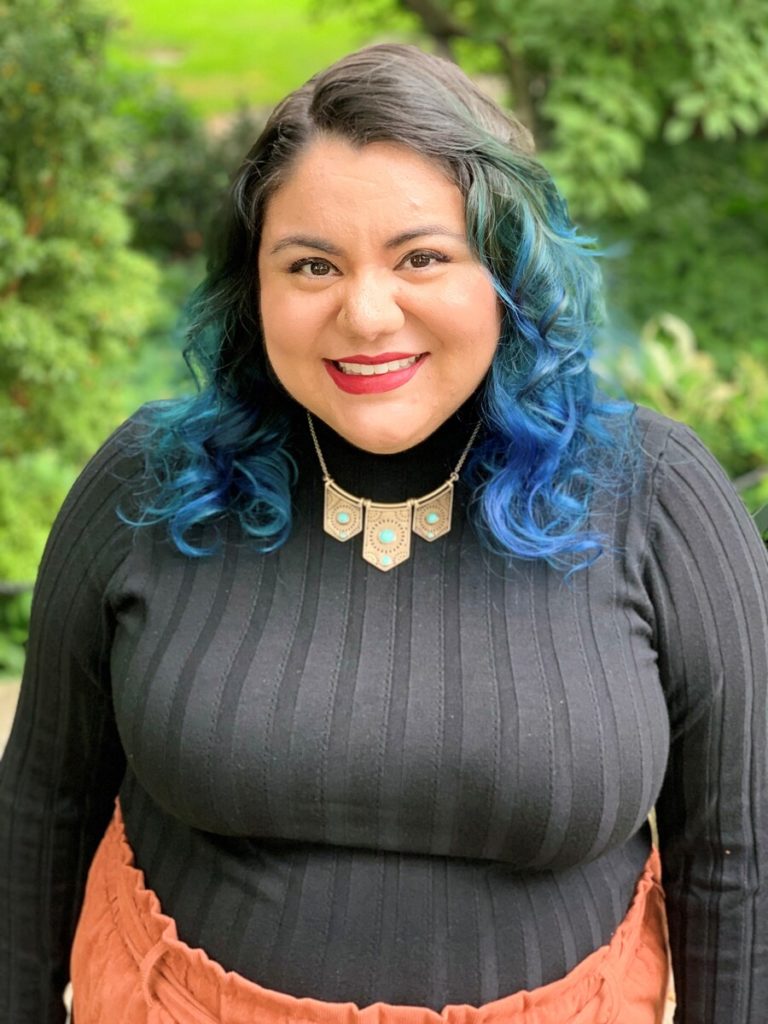If you would like to recommend a theatre artist for a future Role Call, fill out our open Google Form here.
Donzell Lewis (he/him)

Profession: Teaching artist, actor, drag queen, and comedian
Hometown: Born in San Joaquin County, Calif.; raised in Richmond, Va.
Current home: Los Angeles
Known for: A theatre teaching artist and performer in Los Angeles, he created theatre programs in elementary schools that empower children through Ritual Poetic Drama (RPD) within the African Continuum. He combined RPD with the Universal Design for Learning framework (UDL) to create curricula that are flexible to all learning styles and programs that are inclusive, empowering, nurturing, and entertaining. As a performer, he’s most known for his work in drag, plays, movies, commercials, and animation, including the world premiere of the play Dope Queens (Los Angeles), the short animated film Luv U Cuz, and a Warby Parker commercial currently airing.
What makes him special: “Donzell is the type of arts teacher you dreamed of having as a kid: engaging, funny, and honest with the kids,” P.S. Arts L.A. teaching artist Dionne Neish said. “He is teaching these future adults how equality and being your authentic self will always be the key to joy and happiness.”
What the last year-and-a-half were like: For Lewis, the last 20 months challenged received ideas of what it means to have true connection, and led him to innovate ways he could “use theatre online to create a safe, creative space that provides students with the connection they desire and miss.” So he created assignments with multiple forms of connection, which brought students “a sense of community as they were reforming and redefining it in real time.” These are lessons he’s bringing with him as he returns to in-person learning.
What’s next: He’ll appear in the upcoming romcom Divorce Bait in the role of “Diva.” In the meantime, you can find him in a classroom preparing for the upcoming school spring musical, Disney’s The Lion King, Jr.
Protect your power: Lewis was always a theatre kid, but in college was told by a faculty member that he was “too gay” to be an actor and was encouraged to leave the field. Later, it was studying RPD with Dr. Tawnya Petitford-Wates that saved him. “It empowered me and helped me rediscover my power as an artist,” he said. “It’s what also inspired me to be a teacher—I help students to protect, maintain, and refine their artistic power too. As educators, it’s never our job to tell students what they are or tell them what they can’t achieve, as was done unto me…My life’s purpose is to create my best art while also helping students do the same.”
H. Adam Harris (he/him)

Profession: Artist and administrator
Hometown: Detroit
Current home: Orange County, Calif.
Known for: A frequent performer and director for various theatres and orchestras across the Twin Cities, he has been a longtime resident teaching artist with the Guthrie Theater, Children’s Theater Company, Penumbra Theatre Company, and St. Paul Conservatory for Performing Artists. Harris is also the board chair of Ten Thousand Things, a former engagement associate at the Playwrights’ Center, and is the current artistic/audience engagement associate at South Coast Repertory.
What makes him special: “He is an inspiration as a facilitator and teaching artist, cultivating empathy in every room he finds himself,” said Claribel Gross, a theatremaker and teaching artist who has also worked with Penumbra Theatre Company. Gross pointed to his “dynamic personality and courageous approach to theatre” and “his belief that, while we create art, we must also work to dismantle inequities” are among his standout qualities.
What the last year-and-a-half were like: “I’ll always remember the palpable grief in Minneapolis,” Harris said, referring to the aftermath of the killing of George Floyd, “but I’m also holding space for the solidarity that was cultivated. That dual feeling of despair and ‘We got this’ energy is driving my work these days.”
What’s next: Harris will be directing Redwood by Brittany K. Allen at Jungle Theater in Minneapolis, Feb. 5-March 13, 2022. Redwood was originally supposed to run in March and April of 2020 before the pandemic postponed the production. He will also be collaborating with playwright JuCoby Johnson on a new work.
Joyful rage: “I’m excited about what we are dismantling and disrupting in our industry,” Harris said, reflecting on the field as a whole. “I’m hopeful that we sustain our joyful rage and make the theatre we know to be possible.”
Hui Cha Poos (she/her)

Profession: “Teacher first, choreographer second”
Hometown: Born in Seoul, Korea, then moved to Moore, Okla.
Current home: Edmond, Okla., and Oklahoma City
Known for: A longtime teacher of dance, Poos founded the nonprofit RACE Dance Collective with a mission to “ignite social awareness and change through dance performances, education, and community engagement.” As a performer in L.A., she worked in feature films, TV shows, and music videos, and as an Oklahoma-based choreographer her credits include work American Idiot, The Curious Incident of the Dog in the Nighttime, and Rocky. Last fall she received the Oklahoma Governor’s Arts Award, the highest honor for the arts in the state.
What makes her special: Former Oklahoma City Rep artistic director Donald Jordan called Poos “an artist of amazing vision, collaborative spirit, drive and energy,” hailing in particular her work on “a Public Works-style production of The Music Man” and the movement sequences in Curious Incident.
What the last year-and-a-half were like: Comparing the pandemic to the kind “shedding of skin” she went through after the birth of her first child, Poos recalled, “I was alone but not lonely, because I know how to use dance to keep me grounded. I took classes from friends on both coasts, I taught reunion classes on Zoom, but mostly I just rested.” When protests against police violence and white supremacy proliferated in the summer of 2020, her RACE Dance Collective shifted to activism, interviewing and filming local activists, dance leaders, and street dancers to “discuss the issues and face them head on together.”
What’s next: She’s working on shows for University of Central Oklahoma dance and helping to prepare RACE Dance Academy’s Hip-Hop Nutcracker.
Cheek to cheek: Poos traces her theatre origin story to a performance at Lyric Theater in Oklahoma City when she was about 10 years old. “I don’t remember what the show was but I do remember being absolutely mesmerized by it,” Poos recalled. “I couldn’t believe what I was watching. I remember smiling from cheek to cheek and enthusiastically telling my parents about it when I got home. The joy, wonder, imagination that show gave me (despite the language barrier) was tangible for a very long time, and I still remember that kid in the audience when I put on shows.”
Morgan Hicks (she/her)

Profession: Director, dramaturg, playwright
Hometown: Harrison, Ark.
Current home: Fayetteville, Ark.; formerly Ireland and Chicago
Best known for: A professor at the University of Arkansas and the arts engagement director at TheatreSquared, which she co-founded 16 years ago, Hicks also cultivated new programs at TheatreSquared, including the Arkansas New Play Fest, the Arkansas Schools Tour, and the TheatreSquared Professional Development Institute. She is currently curating and growing the New Voices series at TheatreSquared with the mission of cultivating future voices for the American theatre through creating access and opportunities within our space.
What makes her special: “You should already know about Morgan Hicks, but you probably don’t because she is the patron saint of unsung heroes,” TheatreSquared learning programs manager Jordan Haynes said. “Always the champion of others, in her personal life Morgan is constantly advocating for those around her. She is always ready to go to battle for her colleagues, friends, students and artists. She is constantly working to make the art better and make the world better.”
What the last year-and-a-half were like: “Everything that has happened in the last 18 months has created the kind of crisis that we, as individuals, have had to either choose to allow to paralyze or activate us,” Hicks said. Neither her university nor TheatreSquared ever completely shut down. While reimagining their “Play On” series to help high school teachers thrown into virtual teaching and exploring options for virtual programming and new-play development, they also dug deep into difficult conversations about their vision and mission. “There was a really interesting collision of time and space that allowed us to do some of the harder work that can be delayed when you are so busy making theatre,” Hicks said. “I believe there was a gift in being able to slow down to really discuss why we do this work and how to do it in a more equitable and inclusive way.”
What’s next: She is currently revising TheatreSquared’s touring show, The History Show, in preparation to send it out on the road for live school performances in Arkansas, Missouri, and Oklahoma in the spring. She is also preparing to direct Ride the Cyclone at the University of Arkansas in the spring.
On theatre as storytelling: “To me, theatre is essentially an opportunity for storytelling,” Hicks said. “When I lead professional development conversations with teachers, of course I want to help arm them with tools to be successful in this craft, but I always try to remind them that what draws a student to theatre isn’t the desire to learn a specific technical term or skill; it is the desire to be seen and heard and to connect to other humans. Above all else, this opportunity for empathy and understanding—for others and ourselves—keeps us in this work and carries it forward generation after generation.”
Thomas Fiocchi (he/him)

Profession: Props technologist
Hometown: Vineland, N.J.
Current home: Athens, Ohio
Known for: The owner of Fiocchi Sword and Prop, Fiocchi has been building stage combat weapons since the 1980s, and has created a props program at the Ohio University School of Theater that has graduated many successful designers. “Interaction with students truly keeps one young,” Fiocchi said, “and to see their portfolios get better than my own is quite a thing.” He has also branched into cosplay in recent years, enthusing by way of explanation, “It is WAAAYYY too much fun.”
What makes him special: Liz Hastings, a props carpenter and artisan in Massachusetts, raved that studying with Fiocchi at OU “helped me absolutely explode my portfolio and helped expand my skills in ways I didn’t think were possible.” Eric Hart, who teaches about stage props at the University of North Carolina School of the Arts, summed up Fiocchi’s all-encompassing impact on his career: “He showed me how to build anything out of anything.”
What the last year-and-a-half were like: Online teaching, Fiocchi said, forced him to “delve deeper into different techniques I had not had time to explore before. I am a much better leather worker and upholsterer after the pandemic.” Though he’s overjoyed to be back teaching in person, even amid budget cuts and uncertainty about the future of the field that has “everyone continually on edge,” he has also had the realization that the long, punishing hours he expected of himself and other in previous years are not sustainable. “I am trying to train a new generation of props people who will not be abused like that,” he said.
If you build it: “This isn’t brain surgery,” said Fiocchi self-deprecatingly, but it does take “some manual dexterity and mostly the fire to build stuff!” And teaching fuels his work. As he put it, “Being able to teach skills like furniture building, upholstery, fiberglass, casting, metalwork, weaponry, foam carving…around eager students with fresh passion for learning how to do these things has made coming to work each day very enjoyable. It is the building that makes theatre special.”
Tiffany Maltos (she/her)

Profession: Administrator, teaching artist, and artist for social change
Hometown: Born in Yokosuka, Japan; raised in Brownsville and San Antonio, Texas
Current home: Seattle, on the unceded and traditional territories of the Duwamish and Coast Salish Peoples
Known for: Associate director of education and engagement at Seattle Children’s Theatre (SCT) and a founding member of the BIPOC in TYA Advisory Board, Maltos has focused on building community partnerships to bring theatre and theatre education to young people who don’t have access to the art.
What makes her special: “Tiffany Maltos has her own gravity,” said Courtney Sale, former artistic director of SCT and current Merrimack Repertory Theatre artistic director. “If we could figure out how to replicate it, we would transform every theatre in this country. The centrifugal force of this gravity comes from valuing students, teachers, colleagues, and community with exceptional care.”
What the last year-and-a-half were like: The pandemic gave Maltos the chance to innovate and reimagine her theatre’s education programs, and challenged her to see where she can have the most impact in the field’s call for racial equity and accountability. “As one of a handful of BIPOC staff, I dove into conversations around culture at my theatre,” Maltos said, “but soon realized that perhaps the faster way to create change at my organization was to team up with others and address racial equity in the national TYA field.”
What’s next: Maltos is supporting SCT as it ushers in a new era of engagement programming, emphasizing authentic, relationship-based partnerships with local and regional communities. This effort includes continuing to work with organizations like King County Juvenile Detention Center and the Northwest African American Museum, while welcoming new organizations to the possibilities of bringing theatre and storytelling to their communities.
Clearing the way: Maltos recalled being asked by Johamy Morales, her mentor, what her work would be like if racism and oppression were no longer present. How much more productive could she be if she didn’t have to navigate white supremacy culture? “I keep coming back to that vision in my work for young people,” Maltos said. “What thorny vines of oppression can I cut away through my work so that the next wave of BIPOC leaders and artists don’t have to? We know change is a long process. If I can make this theatre landscape a little less thorny and a little more equitable, then I hope that makes it easier for the next generation to facilitate a greater impact.”


